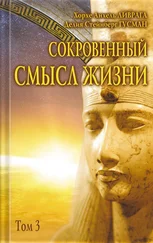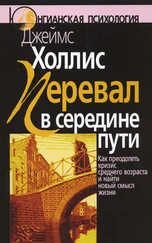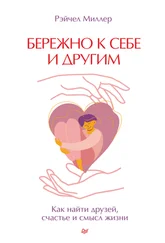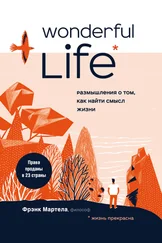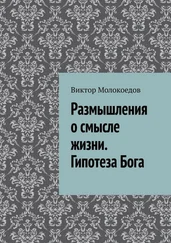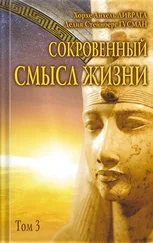Human sociality and living in large tribes most probably had much to do with why we developed the unique capacity for reflection as, e.g., Dunbar has argued. Also the need for justification most probably had much to do with the need to justify our actions to others as, e.g., Haidt has argued. See Robin I. M. Dunbar, “The Social Brain Hypothesis,” Evolutionary Anthropology: Issues, News, and Reviews 6, no. 5 (1998): 178–190. And Jonathan Haidt, “The Emotional Dog and Its Rational Tail: A Social Intuitionist Approach to Moral Judgment,” Psychological Review 108 (2001): 814–834.
See Frank Martela & Michael F. Steger, “The Meaning of Meaning in Life: Coherence, Purpose, and Significance as the Three Facets of Meaning,” Journal of Positive Psychology, 11, no. 5 (2016): 531–545.
Erich Fromm, Escape from Freedom (New York: Avon Books, 1965), p. viii. The first edition of the book was published in 1941.
Fromm, Escape from Freedom, xii.
Пер. А.В. Александрова.
Michael F. Steger, Yoshito Kawabata, Satoshi Shimai & Keiko Otake, “The Meaningful Life in Japan and the United States: Levels and Correlates of Meaning in Life,” Journal of Research in Personality 42, no. 3 (2008), 660–678.
Charles Taylor, A Secular Age (Cambridge, MA: The Belknap Press of Harvard University Press, 2007). The description of the worldview of people living in the 1500s is mainly based on chapter 1 of Taylor’s book.
Taylor, A Secular Age, 42, based on Stephen Wilson, The Magical Universe (London: Hambledon & London, 2004).
Max Weber, The Sociology of Religion (Boston: Beacon Press, 1971).
There is, of course, a big leap in worldviews between belief in local spirits and one omnipotent creator God, but we have no space to go through the so-called axial revolution and how that transformed our worldviews.
Aristotle, Nicomachean Ethics, trans. Robert C. Bartlett & Susan D. Collins (Chicago: University of Chicago Press, Chicago, 2012).
Aristotle, Nicomachean Ethics, no6a:i7–24.
Telos ( греч . конец, цель) – в древнегреческой философии конечная цель чего-либо; один из четырех основных принципов бытия в философии Аристотеля.
Summum bonum ( лат . высшее благо) – Цицерон в своей работе «О высшем благе и высшем зле» писал: «Мы ищем, что является предельным и последним из благ. По мнению всех философов, оно должно быть таким, чтобы все измерялось им, а само оно – ничем вне его».
Note that Hochschild argues that this question was asked up to the twentieth century, while here I am arguing that meaning of life started to replace it in the nineteenth century. Joshua P. Hochschild, “What ‘the Meaning of Life’ Replaced,” https://thevirtuebl0g.c0m/2017/12/18/what-the-meaning-of-life-replaced/.
Пер. Е. Цветковой.
Название переводится с латыни как «Перекроенный портной».
Ральф Уолдо Эмерсон – американский эссеист, поэт, философ, пастор, лектор, общественный деятель.
Герман Мельвилль – классик американской литературы, писатель-романтик, поэт и моряк, автор классического романа «Моби Дик».
Уолт Уитмен – американский поэт и публицист, реформатор американской поэзии.
See the introduction by Kerry McSweeney and Peter Sabor in Carlyle, Sartor Resartus.
The philosopher Wendell O’Brien argues that Carlyle’s book is the earliest known piece of literature where the phrase “meaning of life” occurs. Oxford English Dictionary similarly gives Carlyle’s book as the earliest example of the phrase. My own searches and consultations with a few specialists have not been able to find any previous occasion when somebody would have used the phrase “meaning of life.” I would love to be proven wrong, but at this point I propose that the phrase was probably coined in English by Thomas Carlyle in 1833–1834, inspired by German romantics using the phrase “der Sinn des Lebens” a few decades earlier. See Wendell O’Brien, “The Meaning of Life: Early Continental and Analytic Perspectives,” in Internet Encyclopedia of Philosophy (2014). Retrieved from http://www.iep.utm.edu/mean-ear/.
Thomas Carlyle, Sartor Resartus (Oxford: Oxford University Press, 1987), 3.
Пер. Н. Горбова.
Carlyle, Sartor Resartus. The quotes in this paragraph are from pages 87, 89, 127, 140, 149.
Пер. Н. Горбова.
Пер. Е. Цветковой.
Пер. Е. Цветковой.
Carlyle, Sartor Resartus, 211.
Пойоменон (от др.-греч. : ποιούμενον – «создание») – термин, придуманный исследователем Алистером Фаулером для особого типа метапрозы, в которой речь идет о процессе творчества, о создании книги. По Фаулеру «пойоменон даёт возможность изучать границы вымысла и реальности – пределы повествовательной правды».
Soren Kierkegaard, Either/Or, trans. Howard V. Hong & Edna H. Hong (Princeton, NJ: Princeton University Press, 1987), 31.
Сэмюэл Беккет – французский и ирландский писатель, поэт и драматург. Представитель модернизма в литературе.
Джордж Элиот – английская писательница.
Рихард Вагнер – немецкий композитор, дирижёр и теоретик искусства.
Томас Хаксли – английский естествоиспытатель, ближайший соратник Ч. Дарвина и популяризатор его учения.
Arthur Schopenhauer, On Human Nature, trans. Thomas Bailey Saunders (New York: Cosimo, 2010), 62. The phrase “Sinn des Lebens” appears also at least once in Schopenhauer’s magnum opus Die Welt ah Wille und Vorstellung.
Читать дальше
![Фрэнк Мартела Wonderful Life. Размышления о том, как найти смысл жизни [litres] обложка книги](/books/390695/frenk-martela-wonderful-life-razmyshleniya-o-tom-k-cover.webp)
